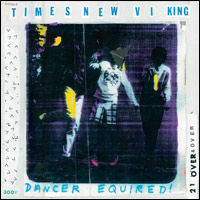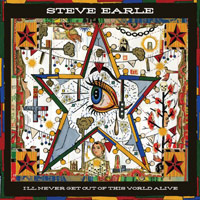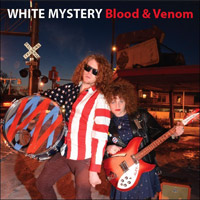
Dancer Equired
Merge
Upon hearing Dancer Equired, the latest album from Times New Viking, for the first time, the thing one notices immediately is that the Columbus trio has largely swept away the hairy balls of fuzz and noise that littered its past recordings. Indeed, closer inspection reveals that the band actually entered a proper studio (Columbus’ long-running Musicol Recording) to make the record instead of morphing rehearsal tapes and home recordings into an album.
But as much as one might want to make grand statements about this new cadence or use words like “mature” in describing Dancer Equired (the album has already gotten airtime on NPR and the band is now on the same label as Arcade Fire), the story here is not so much the methodology, but the songs. It’s been six years and four records since TNV debuted with Dig Yourself, and so they are a little longer in the tooth and, perhaps, a little wiser. Where once Adam Elliott and Beth Murphy sang with romantic nihilism (or was it nihilistic romanticism?), here they sound a little world-weary on cuts like “Want to Exist” and “No Room to Live.” The latter is one of the group’s finest songs to date, a mix of lyrical bittersweets with acoustic and electric guitar lines and snare backbeat. The track, like much of the album, is devoid of the squall that characterized past records, but one gets the sense that it would have been just as astounding had it been lovingly fucked with. More vividly, songs like “Try Harder” and “New Vertical Dwellings” are essentially made of the same stuff (vocal tug-and-pulls, wiry guitar riffs, spastic drumming, lyrcial platitudes, etc.) as previous glories like “Dance Walhalla” and “No Time, No Hope,” even if the band is coloring inside the lines these days. Dancer Equired sits among TNV’s best, not because of what it isn’t, but because of everything it is.
Stephen Slaybaugh
MP3: “Ever Falling in Love”

I’ll Never Get Out of this World Alive
New West
Steve Earle has been hitting the sweet spot between country music and rock & roll for more than 25 years now. Think the Band, but with a much darker past. Most young people, if they recognize him at all, know Earle as Walon, the recovering drug addict from David Simon’s untouchable HBO series The Wire. But long before he ever mentored Bubbles, the gravelly voiced singer-songwriter channeled his demons on a string of great records. And his latest, I’ll Never Get Out of This World Alive, is as good an entry-point as any.
The record begins with “Waitin’ for the Sky,” an apocalyptic barnburner in the tradition of Johnny Cash’s “When the Man Comes Around.” Over the course of the album’s first half, Earle reveals himself to be adept at a number of countrified sub-genres, with “Little Emperor” sounding like it came straight out of an Old West saloon and the elegiac jig “Molly” employing an Irish fiddle to great effect. Other highlights include the late-night Tom Waits stomp of “Meet Me in the Alleyway” and the New Orleans brass band number, “This City,” which provides hopeful closure to a record that started out waiting for the sky to fall.
At this point in his career, Earle is officially one of the elder statesmen. The blogs and magazines are much more likely to discuss his son, the emerging New York folk singer Justin Townes. But while Earle possesses all the wisdom that comes with age, I’ll Never Get Out of This World Alive proves that his skills are as sharp as ever.
David Holmes

Blood & Venom
self-released
It’s easy to fall back on adjectives such as “hot,” “fiery,” “explosive,” etc. when talking about White Mystery, but not because the Chicago-based brother-sister duo strike quite a pose with their matching shocks of bright red hair. Rather it’s their music—a molten slab of rock & roll simmering in vast washes of fuzz and reverb—that’s so scorching.
A veteran of the past decade’s Chicago underground, Miss Alex White first teamed up with her brother, Francis Scott Key White, as White Mystery in 2009. Two singles and a self-released LP soon followed. On their second DIY full-length, Blood & Venom (available via the band’s website), the pair stick to the primal, rudimentary riffs and hooks of Alex’s previous project, Miss Alex White and the Red Orchestra. Recalling at different points along the way T. Rex, the Who, the Cramps, and Spacemen 3, among others, White Mystery sets itself apart from other bands steeped in the same elemental sounds through its sheer wrecking-ball power. Every track is heaping with dense layers of distortion made all the more intense by Brother White’s smash-and-grab drumming. Yet the effect never obscures the songs and instead provides energy and muscle.
It is, however, Sister White’s honey-thick rallying cry of a voice that propels the band into the sonic stratosphere. Equal parts sweetness, moxie and pure righteous anger, it can sound menacing one minute and almost achingly romantic the next (see “Pumpkin Creme”). And regardless of one’s gender, it’s hard not to feel inspired when, on “Good Girl,” big sis belts out, “Here’s a message for all you girls. Raise your fists up, punch a whole in the wall.” White Mystery is a like a two-person army on the march, with Alex White as Sherman and a lot more than Atlanta going to burn to the ground.
Nate Knaebel

Generation Indigo
Future Noise
Neil Young put it into the universe, but Jack Black’s character in High Fidelity perfectly crystallized it: is it better to burn out than fade away? In the movie, Black’s talking about the perceived latter-day crimes of Stevie Wonder, but the thought could be more widely applied. It certainly strikes a nerve in an age of seemingly unrestrained reunion fever. At this point, it’s seems to not be a question of who anymore, but when. Is it better to remain a perfect memory or return and at the very least possibly dent the legacy? The latest to step up to the table and roll the dice is former X-Ray Spex frontwoman Poly Styrene, who died yesterday after a battle with breast cancer.
Styrene wasn’t a stranger to the expiration date question as the X-Ray Spex performed a well-received reunion concert in ’08. However, the idea that Styrene would record more music was hardly a given. While she had released some previous solo albums and guested on some other artists’ records, it was so sporadic that it almost seemed like an afterthought. So to see this as a follow-up to the X-Ray Spex’s reunion feels rather ambitious. And since her last album was a new age record, who knew what the end result would be, though the hiring of legendary producer and Killing Joke bassist Youth to man the boards for Generation Indigo was probably a strong indication.
Youth helped concoct a sonic bed that plays like an overview of English pop music, so reggae, Brit-pop, electro-pop and whispers of the Spex all rub shoulders. Lyrically, however, the record starts on shaky ground. “I Luv Ur Sneakers” and “Virtual Boyfriend” seem like a slight return, and it’s not until three songs in that the title tract kicks things off properly. It also reshapes the perception of the rest of the album with its message of anti-modernism. In addressing social issues, Generation Indigo is often so subtle it’s a shock to realize that subtlety was an option. While at times Styrene does go more explicit and perhaps too kumbaya for some people, it’s done with such sincerity that she gets a pass. While this isn’t a perfect record, it’s an undeniably solid collection and a worthy extension of Styrene’s legacy.
Dorian S. Ham
MP3: “Thrash City”

Wit’s End
Domino
At this point in his career, Cass McCombs has established himself as a songwriter and musician. His brand is strong: he’s world renowned among the folkies and the freaks that will shell out for the Wilco boxset while they’re waiting for the midnight release of the newest Joanna Newsom quintuple long-player. His last album, Catacombs was named to best of lists all over the internet and doesn’t get vetoed when it pops up on shuffle. McCombs knows how to make songs and make them well. At some point, though, you’ve got to ask “is that enough?” Sure, not every song a songwriter writes is going to strike every fan out there. Leonard Cohen has his fair share of wince-inducers, and Neil Young doesn’t shit gold either. However, for a songwriter, a craftsman of song, Cass McCombs must exercise that craft in order to wear the title. So, here we have the new exercise, Wit’s End.
Lead-off track, “County Line,” follows in McComb’s formula of slickly crafted pop, except this time he’s added a more soulful flavor. It might be a stretch to say it resembles Marvin Gaye, but the multi-tracked falsetto and the downbeat pause in the vocal melody smack of late-70s, lonely man soul. It’s a keeper. Elsewhere at a few points in the record, like “A Knock Upon the Door,” McCombs drifts painfully close to Crash Test Dummies territory. It turns into Serious Music, but I can’t tell if it is stilted or erudite, and that leads me to think that McCombs is just messing with me because it doesn’t sound like he usually does. That’s better than sounding all the way the same all the time, though, even if it is highfalutin. Sometimes even free-verse writers have to crank out a few sonnets in order to get their jive back. Take “The Lonely Doll,” for instance. It is strictly metered and rhymed—an exercise almost—and it will catch the ear of many as a favorite for sure. Like much of Wit’s End, it is not McCombs’ most inspired work, but it will attract attention from the tortoise-shelled crowd. We’ll see just which track makes it on to the greatest hits package, though.
Michael O’Shaughnessy
ALBUM REVIEWS
w h o k i l l
Ponytail, Do Whatever You Want All the Time
David Kilgour and the Heavy Eights, Left By Soft
The High Llamas, Talahomi Way
The Black Watch, Led Zeppelin Five
Mansions, Dig Up the Dead
Meat Puppets, Lollipop
The Kills, Blood Pressures
Atmosphere, The Family Sign
Yelle, Safari Disco Club
The Pains of Being Pure at Heart, Belong
Mars Classroom, The New Theory of Everything
Hunx and His Punx, Too Young to Be in Love
Fredrik, Flora
Bill Callahan, Apocalypse
